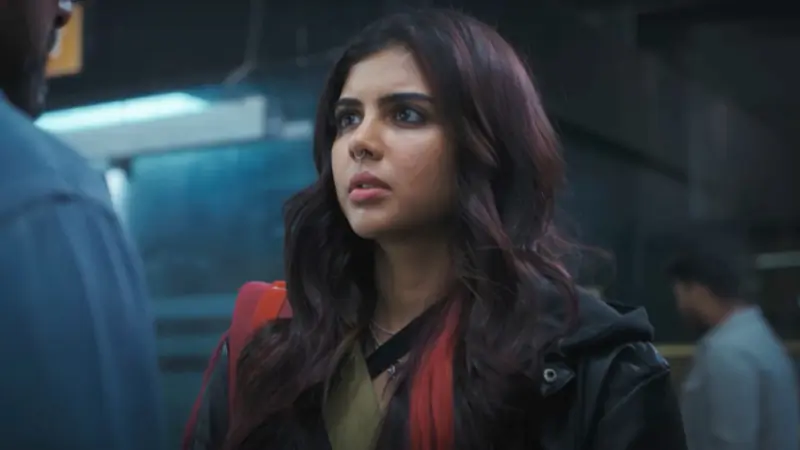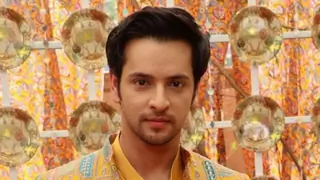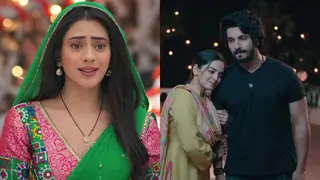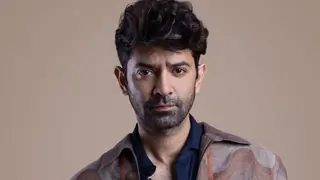Despite success, 'Lokah Chapter 1: Chandra' is in headlines for the wrong reasons; big trouble
What began as debates around alleged political messaging has now snowballed into a controversy about how Bengaluru is shown on screen in Lokah Chapter 1: Chandra.
Published: Tuesday,Sep 02, 2025 12:15 PM GMT+05:30

Lokah Chapter 1: Chandra has found itself in the middle of a storm barely days after its release. What began as debates around alleged political messaging has now snowballed into a controversy about how Bengaluru is shown on screen.
The criticism has not been confined to cinephiles or casual audiences. Filmmakers, activists, and even law enforcement have now stepped into the conversation, giving the dispute a much larger canvas.
From ideology to city portrayal
The film was first challenged for what some viewers described as attempts to push “anti-Hindu” sentiment. Soon after, fresh outrage emerged when certain dialogues were circulated online, where Bengaluru was referenced in connection with parties, drug culture, and women in a dismissive light.
The references triggered strong backlash, with many demanding the immediate removal of the controversial content. Online campaigns quickly gained traction, accusing the film of portraying the city in a distorted manner and calling for accountability from its makers. The outrage intensified as critics argued that such depictions unfairly misrepresented both the place and its people.
Police response and monitoring

As the online uproar gained traction, Bengaluru’s Police Commissioner Seemant Kumar Singh announced that the Central Crime Branch’s social media monitoring team would assess the matter. Singh noted that any violation would invite necessary action, keeping the controversy firmly in official sightlines.
The police involvement indicates that the issue has moved beyond cultural debate into potential legal review. For the film’s makers, this marks a critical point in how they handle the fallout.
Voices from the Kannada film fraternity
Prominent voices within Karnataka’s film community have spoken out. National Award-winning director Mansore highlighted a trend across industries where Bengaluru is shown as a hub of vice in films beyond Kannada cinema. He contrasted this with older depictions of the city as a thriving, progressive hub, questioning the responsibility of filmmakers in shaping public perception.
Alongside filmmakers, activist Rupesh Rajanna demanded accountability from Raj B. Shetty, who distributed the film in Karnataka. Rajanna criticised the portrayal of Bengaluru women and pushed for both dialogue removal and a public apology. His remarks added pressure on the distributors as well as the production house.
Wayfarer Films issues an apology
https://www.instagram.com/p/DOGDS0tk4F9/Faced with sustained backlash, Wayfarer Films, the production house headed by actor Dulquer Salmaan, released an official statement. They acknowledged that a line spoken by a character had offended sections of the audience and confirmed that the dialogue would be removed or altered.
The company reiterated that no disrespect was intended, but their prompt corrective step shows the scale of public pushback. By acting quickly, Wayfarer Films attempted to contain the growing controversy while urging audiences to accept the apology.
The larger question of Bengaluru on screen
Beyond the specific case of Lokah Chapter 1: Chandra, the dispute has revived broader conversations about Bengaluru’s cinematic identity. While Kannada films often balance depictions of tradition and modernity, portrayals in other industries have leaned toward themes of excess and crime.
The tension lies between artistic freedom and the responsibility to avoid reinforcing negative stereotypes. With streaming platforms and pan-India releases, what gets said about a city in one film can rapidly shape nationwide impressions. That is why local stakeholders view such portrayals as more than throwaway lines.
For the makers of Lokah, the dialogue change may put the immediate fire out. But the questions raised are likely to linger in discussions on representation, accountability, and the limits of creative liberty in India’s evolving cinematic landscape. It is always tricky terrain.
What do you think about this entire scenario? Do you believe it is another case of people getting offended for the wrong reasons? Or do you believe it is a genuine case of backlash from everyone? Let us know and discuss further in the comments below.
Lokah Chapter 1: Chandra may have struck gold at the box office, but its success is now overshadowed by controversy. From allegations of political messaging to outrage over Bengaluru’s portrayal as a hub of vice, the storm has pulled in activists, filmmakers, and even the police. With dialogue cuts and apologies, the debate on cinema’s responsibility only deepens.
Join Our WhatsApp Channel
Stay updated with the latest news, gossip, and hot discussions. Be a part of our WhatsApp family now!
Join NowYour reaction
 Nice
Nice Great
Great Loved
Loved LOL
LOL OMG
OMG Cry
Cry Fail
Fail
















Post a comment